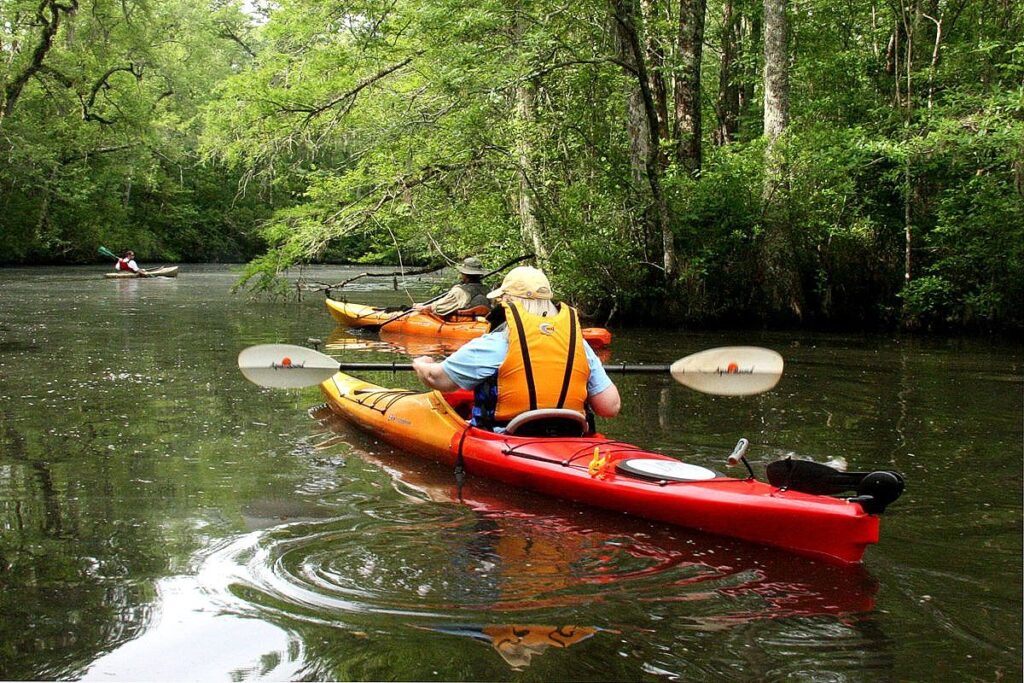Washington County, located in the Coastal Plain region of North Carolina, was formed in 1799 from Tyrrell County and named for President George Washington. It is partially bordered by the Albemarle Sound. Early inhabitants of the area included Algonquian Indians, followed by English settlers. Plymouth, the county seat, was incorporated in 1807 and named for Plymouth, Mass. Other Washington County communities include Roper, Creswell, Cherry, Scuppernong, Pleasant Grove, Westover, Hinson, and Wenona. Besides Albemarle Sound, notable bodies of water in the county include the Roanoke and Scuppernong Rivers, Phelps and Pungo Lakes, Beaver Dam and Kendrick Creeks, and East Dismal Swamp. The Pocosin Lakes National Wildlife Refuge is located in the southeastern corner of the county.
Washington County historic sites include Garrett’s Island Home, built in the mid-eighteenth century; Westover Plantation and Homestead Farm, both built in the mid-nineteenth century; and Somerset Place, built in the late eighteenth century and today a North Carolina State Historic Site. As a consequence of the Battle of Plymouth (1864), Confederate forces recaptured the town and reopened the Roanoke River. Cultural attractions include the Port O’ Plymouth Roanoke River Museum and the Washington County Arts Council. The county hosts festivals and annual events such as Riverfest, Civil War Living History Weekend, Somerset Homecoming, Indian Heritage Week, and Plymouth Farm-City Festival.
Washington County agricultural products include corn, soybeans, peanuts, tobacco, cotton, cabbage, sage, beans, potatoes, hogs, and poultry. Manufactured products include wood pulp, paper, plywood, lumber, pallets, clothing, rope, and processed peanuts. Washington County’s estimated population was 13,500 in 2004.

